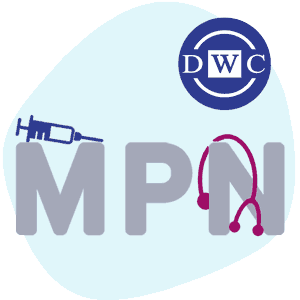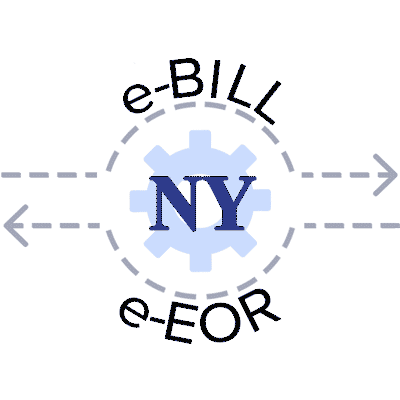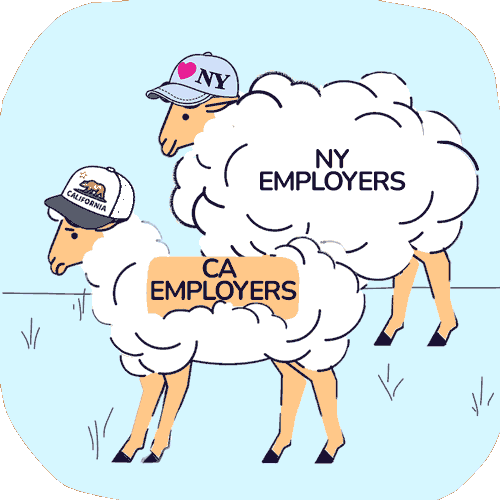NY: Payment Denials - Form C-8.1B Changes Explained
.gif)
New York’s Workers’ Compensation Board (WCB) is adding a new layer of protection for providers facing payment denials for injured worker treatment.
Effective January 5, 2026, a new version of the Notice of Objection to a Payment of a Bill for Treatment Provided (Form C-8.1B) will require payers to provide more specific reasons for denying payment. Failure to comply may nullify the payer’s objection.
Additionally, payers will have to certify that they have notified the provider, injured worker, and worker’s attorney (if applicable) of their refusal to pay a medical bill, and include the reasons.
Contrast New York’s approach with the reality in California, where payers routinely play “IBR Chicken,” denying payment and appeals by citing random, invalid reasons:
- In the best-case scenario for payers, the payer keeps the reimbursement by default.
- Worst case, the provider pays $195 to request Independent Bill Review (IBR), and the payer only remits what they already owed to begin with.
New York does the unthinkable (in California, anyway): it requires payers to actively defend their payment denials with valid reasoning. The NY WCB protects its providers, while the CA DWC encourages provider payment abuse.
NY WCB: Payers Must Explain Denials
Payers must file the C-8.1B when they deny payment based on a provider’s failure to adhere to the Medical Treatment Guidelines (MTG) or for liability reasons.
When the new C-8.1B takes effect, payers will have to “provide a detailed explanation of their objections to bills for medical treatment.” Depending on the specific reason for the objection, the payer explains their decision in box 12 or 20 on the form.
The WCB notes (bold emphasis ours):
“The information entered in these fields must provide clear and detailed narrative explanations of the objections raised by the payer and include relevant facts, such as dates and injury sites, when appropriate. Failure to provide a detailed explanation in boxes 12 and/or 20 may result in the C-8.1B form being deemed incomplete and denied.”
Additionally, pursuant to 12 NYCRR 325-1.25, the new C-8.1B includes a required certification indicating that the payer sent a copy of the form to:
- The provider
- The injured worker and their attorney (if applicable)
- The WCB
Previously, the form only indicated whether the payer sent a copy to the provider.
NY: A Level Playing Field for Providers
In New York, payers must actively justify denials by filing the appropriate form (Form C-8.4 for valuation objections, Form C-8.1B for liability/MTG). If the payer fails to object promptly and compliantly, it risks losing the billing dispute.
Moreover, if a provider disputes a payer’s denial by filing a Request for Decision on Unpaid Medical Bills (HP-1.0), the WCB addresses the dispute at no charge.
It’s a balanced system with roughly equal administrative obligations and consequences for both sides. New York recognizes that timely, accurate reimbursement is a provider’s legal right, not a luxury providers should have to pay for.
In other words, it’s the opposite of what California does.
NY Shows How CA Rigs the Game Against Providers
In California, payers must share denial and reduction reasoning on a bill’s Explanation of Review; however, that reasoning can be (and often is) invalid, counterfactual, or irrelevant.
The payer keeps the provider’s reimbursement by default if the provider fails to submit a timely Second Review appeal to dispute the payment denial.
When Second Review appeals fail, the provider’s only option is to pay $195 and request IBR. However:
- Most of the time, the California Division of Workers’ Compensation (CA DWC) fails to assign the dispute for IBR by the legal deadline while the provider remains unpaid.
- Too often, the CA DWC deems the payment dispute ineligible for IBR, and the payer keeps the money by default.
Other times, IBR determines that the payer must reimburse correctly, but the state almost never enforces:
- Mandatory penalty and interest payments, which are uproariously “self-executing” in California
- Restitution of the $195 IBR filing fee
The net effect: In California payers know improperly denying payment likely has no consequences. Consistently denying and underpaying (even for blatantly bogus reasons) increases profits as doctors, abandoned by the CA DWC and lacking the time and resources to navigate the appeals gauntlet, cave.
When California finally decides it’s ready to overhaul its national embarrassment of a workers’ comp system, New York might serve as a better model.
daisyBIll is a WCB-approved e-billing partner. Click below to see how we make workers’ comp easier for providers:
TAKE A LOOK: DAISYBILL
DaisyBill provides content as an insightful service to its readers and clients. It does not offer legal advice and cannot guarantee the accuracy or suitability of its content for a particular purpose.







